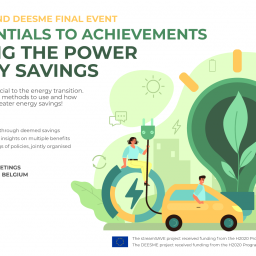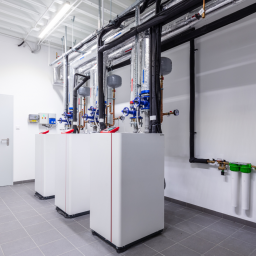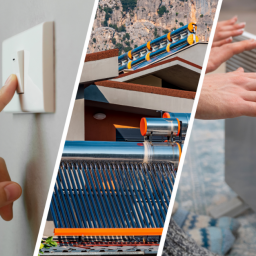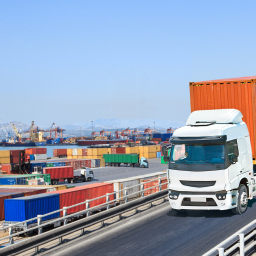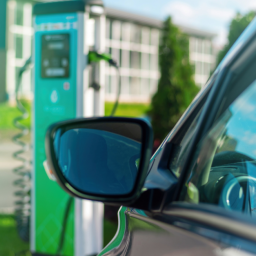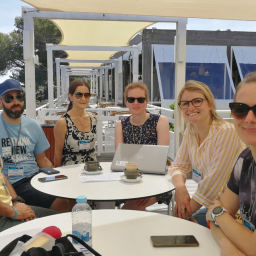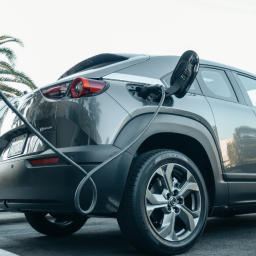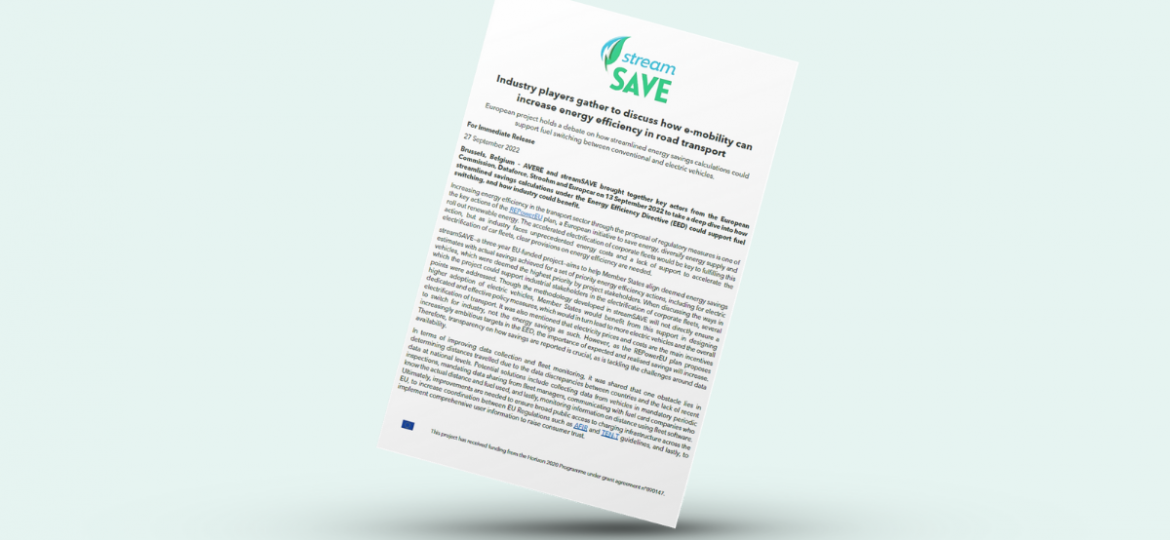
For Immediate Release
27 September 2022
Brussels, Belgium – AVERE and streamSAVE brought together key actors from the European Commission, Dataforce, Stroohm and Europcar on 13 September 2022 to take a deep dive into how streamlined savings calculations under the Energy Efficiency Directive (EED) could support fuel switching, and how industry could benefit.
Increasing energy efficiency in the transport sector through the proposal of regulatory measures is one of the key actions of the REPowerEU plan, a European initiative to save energy, diversify energy supply and roll out renewable energy. The accelerated electrification of corporate fleets would be key to fulfilling this action, but as industry faces unprecedented energy costs and a lack of support to accelerate the electrification of car fleets, clear provisions on energy efficiency are needed.
streamSAVE—a three-year EU-funded project—aims to help Member States align deemed energy savings estimates with actual savings achieved for a set of priority energy efficiency actions, including for electric vehicles, which were deemed the highest priority by project stakeholders. When discussing the ways in which the project could support industrial stakeholders in the electrification of corporate fleets, several points were addressed. Though the methodology developed in streamSAVE will not directly ensure a higher adoption of electric vehicles, Member States would benefit from this support in designing dedicated and effective policy measures, which would in turn lead to more electric vehicles and the overall electrification of transport. It was also mentioned that electricity prices and costs are the main incentives to switch for industry, not the energy savings as such. However, as the REPowerEU plan proposes increasingly ambitious targets in the EED, the importance of expected and realised savings will increase. Therefore, transparency on how savings are reported is crucial, as is tackling the challenges around data availability.
In terms of improving data collection and fleet monitoring, it was shared that one obstacle lies in determining distances travelled due to the data discrepancies between countries and the lack of recent data at national levels. Potential solutions include collecting data from vehicles in mandatory periodic inspections, mandating data sharing from fleet managers, communicating with fuel card companies who know the actual distance and fuel used, and lastly, monitoring information on distance using fleet software. Ultimately, improvements are needed to ensure broad public access to charging infrastructure across the EU, to increase coordination between EU Regulations such as AFIR and TEN-T guidelines, and lastly, to implement comprehensive user information to raise consumer trust.


